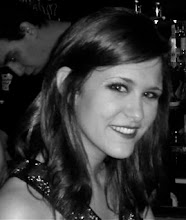The business I was most familiar with was the Charleston CVB, because I interned with the Athens CVB last semester. CVBs are interesting because they're a sales force for the whole industry - they see the big picture in a city. In order for all of the other hospitality-related businesses to do well, the CVB has to be doing its job and bringing business to the community.
The InterContinental Hotels Group represents InterContinental, Crowne Plaza, Hotel Indigo, Holiday Inn, Holiday Inn Express, Staybridge Suites, and Candlewood Suites hotels all over the world. A typical day working for IHG includes a lot of writing and phone calls, but there's also a lot of crisis communication involved as there is in any big corporation. Time management can be difficult in this kind of setting, because you have a lot of people from different levels asking you to do things for them.
Melissa Libby runs her own PR firm which focuses on restaurants in the Atlanta area. Her background was in hospitality, so when she opened her own agency she immediately started getting clients in hospitality. She spends a lot of time strategizing with clients and talking to the media.
The Georgia Aquarium, as one of Atlanta's biggest tourist attractions, has a great deal of people working in its PR department (as I previously mentioned, it sounds like such a fun place to work!). Like any PR job, it's far from 9-to-5 and there is always something exciting going on. They have done a lot of cool things lately over there, from a Martha Stewart book signing to having the Sci-Fi network come tape an episode of Ghost Hunters in their Titanic exhibit (for more Aquarium news, check out my friend and classmate Stekki's blog about her intern experiences there).
And that concludes my experience at Real World! I had the best time, met a lot of great people, and am so glad I took advantage of the experience. Anyone who has the opportunity to go next year, it's definitely worth it.



